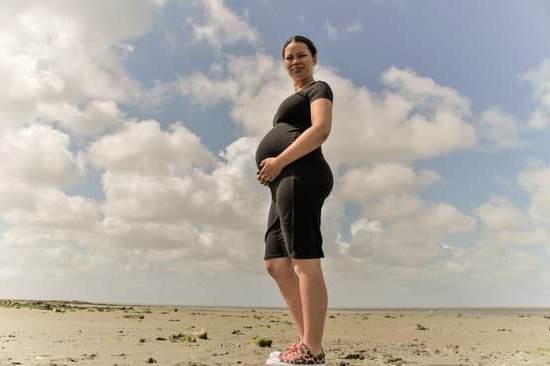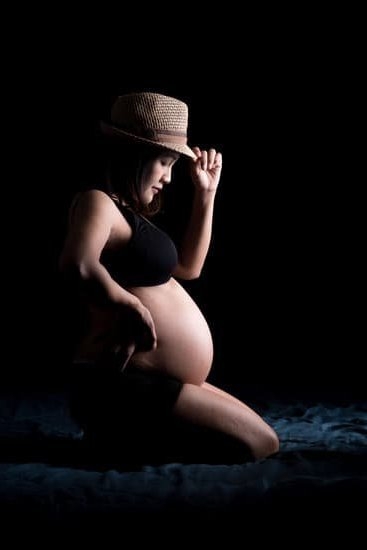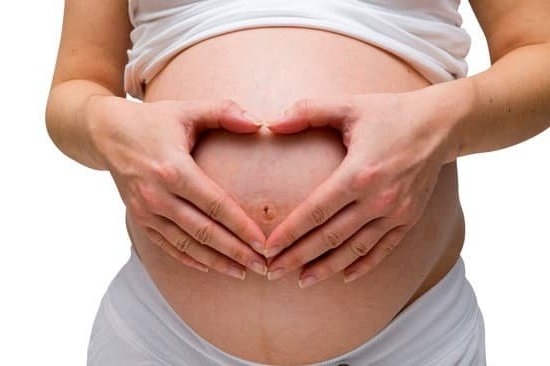How soon will a pregnancy test work? This is a common question for women who suspect they may be pregnant. Understanding the timing of pregnancy tests is crucial in getting accurate results and avoiding unnecessary stress. In this article, we will delve into the science behind pregnancy tests, the difference between early detection tests and standard tests, the best time to take a pregnancy test, factors that can affect its accuracy, and how soon different tests can detect pregnancy.
Pregnancy tests work by detecting the presence of a hormone called human chorionic gonadotropin (hCG) in urine or blood. This hormone is produced by the placenta shortly after a fertilized egg attaches to the uterine lining. The level of hCG increases rapidly in early pregnancy, which allows pregnancy tests to detect its presence within specific time frames.
Early detection tests are designed to detect lower levels of hCG than standard tests, allowing for earlier detection of pregnancy. It is important to understand the differences between these two types of tests and when it is appropriate to use each one. Additionally, knowing when to take a pregnancy test plays a significant role in getting accurate results. Taking the test too early can lead to false negatives, while waiting too long may not produce accurate results either.
Factors such as the timing of ovulation, irregular menstrual cycles, medications, and certain medical conditions can affect the accuracy of a pregnancy test. It is essential for women to be aware of these factors to ensure they get reliable results when taking a pregnancy test.Utilizing these foundational concepts around how soon will a pregnancy test work allows for better understanding toward increasing accuracy with any given time period being measured.
The Science Behind Pregnancy Tests
When it comes to understanding how soon a pregnancy test will work, it’s important to first understand the science behind how pregnancy tests detect pregnancy hormones. Most pregnancy tests are designed to detect the hormone human chorionic gonadotropin (hCG), which is produced by the placenta after a fertilized egg attaches to the uterine lining. This hormone can typically be detected in urine or blood as early as 6-8 days after ovulation.
There are two main types of pregnancy tests: those that can detect lower levels of hCG for early detection, and standard tests that are designed to be used after a missed period. Early detection tests are generally more sensitive and can detect smaller amounts of hCG in the urine.
This means they can provide results earlier than standard tests, often as soon as 7-10 days after ovulation. Standard tests, on the other hand, may not be able to detect hCG until about 12-14 days after ovulation.
To understand how soon a pregnancy test will work for you, it’s important to know when you ovulated. Ovulation typically occurs around 14 days before your next expected period, but this can vary from person to person. If you’re unsure about when you ovulated, an early detection test may be your best option for getting accurate results sooner rather than later.
Here is a timeline of when different types of pregnancy tests can detect pregnancy:
- Early Detection Tests: Can provide accurate results as soon as 7-10 days after ovulation
- Standard Tests: May not provide accurate results until about 12-14 days after ovulation
Early Detection Tests vs Standard Tests
When it comes to choosing a pregnancy test, there are two main options to consider: early detection tests and standard tests. The main difference between these two types of pregnancy tests is the sensitivity in detecting the pregnancy hormone, human chorionic gonadotropin (hCG). Early detection tests are designed to detect lower levels of hCG in the urine, which means they can provide results earlier than standard tests.
Early detection tests are often marketed as being able to provide accurate results up to 6 days before a missed period. These tests can detect hCG levels as low as 20mIU/ml, while standard tests typically have a threshold of 25-50mIU/ml.
However, it’s important to note that not all early detection tests are created equal, and some may be more sensitive than others. It’s crucial to check the sensitivity level of the test before making a purchase.
So, which one should you choose? If you’re eager to find out if you’re pregnant as soon as possible and don’t mind potentially spending more on a test, an early detection test may be the best option for you.
On the other hand, if you’re willing to wait until closer to your expected period and want to save some money, a standard test may be sufficient for your needs. Ultimately, the choice between an early detection test and a standard test comes down to your personal preferences and circumstances.
When to Take a Pregnancy Test
When it comes to taking a pregnancy test, timing is everything. The accuracy of the results can be influenced by the timing of when the test is taken.
In general, if you suspect that you might be pregnant, the best time to take a pregnancy test is after you have missed your period. This is because most home pregnancy tests are designed to detect the presence of the hormone hCG (human chorionic gonadotropin), which is only produced in the body after a fertilized egg has attached to the uterine lining.
For the most accurate results, it’s recommended to wait until at least one day after your missed period before taking a home pregnancy test. However, some early detection tests claim to be able to provide accurate results up to 6 days before your missed period. These tests are typically more sensitive and can detect lower levels of hCG in your urine, but they may not be as accurate as waiting until after your missed period.
It’s important to keep in mind that even though some tests claim they can provide early results, waiting until after your missed period will give you the most accurate result. If you receive a negative result but still suspect you might be pregnant, it’s best to wait a few more days and take another test or consult with your healthcare provider for further testing.
| Best Time | Results Accuracy |
|---|---|
| After Missed Period | Most Accurate |
| 6 Days Before Missed Period | Sensitive but Less Accurate |
Factors That Can Affect the Accuracy of a Pregnancy Test
When it comes to taking a pregnancy test, there are several factors that can affect its accuracy. One of the most important factors is timing.
It’s important to note that no matter the type of pregnancy test, they all rely on detecting the hormone human chorionic gonadotropin (hCG) in urine or blood. This hormone is only produced by the placenta after a fertilized egg has implanted in the uterus, and it takes time for hCG levels to rise high enough to be detected by a pregnancy test.
Another factor that can affect the accuracy of a pregnancy test is how it is used. It’s essential to follow the instructions provided with the pregnancy test kit carefully to ensure accurate results. Using a test incorrectly, such as diluting urine with water or not waiting long enough after collecting a sample, can lead to inaccurate results.
Additionally, certain medications and medical conditions can also impact the accuracy of a pregnancy test. For example, fertility drugs that contain hCG can give false-positive results, while some medications and medical conditions can interfere with hCG production, leading to false negatives. It’s always essential to consult with a healthcare professional if you have any concerns about how these factors may affect the accuracy of your pregnancy test.
| Factor | Effect on Pregnancy Test Accuracy |
|---|---|
| Timing | HCG levels take time to rise after implantation |
| Usage | Incorrect use can lead to inaccurate results |
| Medications and Medical Conditions | Can interfere with hCG production and lead to false results |
Understanding False Negatives and False Positives
When it comes to taking a pregnancy test, understanding the possibility of false negatives and false positives is crucial. A false negative result occurs when a woman is actually pregnant, but the test shows a negative result. On the other hand, a false positive result happens when the test indicates a positive result, but the woman is not actually pregnant.
There are several factors that can contribute to false negatives and false positives. One common factor is taking the test too early. Pregnancy tests rely on detecting the hormone human chorionic gonadotropin (hCG), which is only produced during pregnancy.
If a woman takes the test too soon after conception, her hCG levels may not be high enough to be detected by the test, leading to a false negative result. Additionally, certain medications or medical conditions can also interfere with the accuracy of the test.
It’s important for women to follow the instructions on the pregnancy test carefully in order to minimize the risk of false results. Using an expired or faulty test can also lead to inaccurate results.
It’s recommended to take another test if there is any doubt about the initial result, especially if symptoms of pregnancy persist. Understanding how soon will a pregnancy test work is essential in ensuring accurate results and knowing when to seek further medical advice if needed.
How Soon Will a Pregnancy Test Work
Taking a pregnancy test can be an exciting yet nerve-wracking experience for anyone who suspects they may be pregnant. One of the most common questions that arise is, “How soon will a pregnancy test work?” The answer to this question depends on the type of pregnancy test being used and when it is taken in relation to a woman’s menstrual cycle.
Timeline of Different Tests
Early Detection Tests (6-8 Days After Ovulation)
Early detection pregnancy tests, also known as early response or sensitive tests, are designed to detect lower levels of the hormone hCG. These tests can provide accurate results as early as six to eight days after ovulation, which is typically before a missed period.
Standard Tests (12-14 Days After Ovulation)
Standard pregnancy tests are designed to detect hCG levels once they have risen high enough to indicate pregnancy. These tests are recommended to be used 12-14 days after ovulation, which is around the time of a missed period.
It’s important to note that the accuracy of any pregnancy test can be affected by factors such as not following the instructions correctly, taking the test too early, or certain medications that may interfere with the results.
Factors Affecting Test Accuracy
Factors such as irregular periods, fertility treatments, and certain medications can impact how soon a pregnancy test will work. It’s crucial to take these factors into consideration when deciding when to take a pregnancy test for accurate results.
Tips for Taking a Pregnancy Test
When it comes to taking a pregnancy test, there are certain tips and guidelines that can help ensure the most accurate results. From choosing the right time of day to understanding how to properly use the test, these tips can make a difference in getting reliable information about your pregnancy status.
Choose the Right Test
There are many different types of pregnancy tests available, from traditional urine tests to digital and early detection tests. It’s important to choose the right test for your needs and follow the instructions carefully.
Early detection tests can detect lower levels of hCG hormones and can provide results even before a missed period, while standard tests are typically taken after a missed period. Understanding the differences between these tests and selecting one that aligns with your timeline is crucial for accuracy.
Take the Test at the Right Time
The timing of when you take a pregnancy test can greatly impact its accuracy. For best results, it’s recommended to take a pregnancy test first thing in the morning when your urine is more concentrated. This is because concentrations of hCG are typically higher in the morning. Waiting until after a missed period can also increase the accuracy of the test, as it allows more time for hCG levels to rise if you are pregnant.
Follow Instructions Carefully
To ensure accurate results, it’s important to carefully read and follow the instructions that come with your pregnancy test. This includes paying attention to details such as how long to wait for results, how much urine is needed for the test, and how to interpret the results. Failing to follow these instructions could lead to false negatives or positives.
By following these tips, individuals can increase their chances of obtaining accurate results from their pregnancy tests. Whether trying to conceive or concerned about an unplanned pregnancy, knowing how soon will a pregnancy test work is key in obtaining reliable information about one’s reproductive health.
Conclusion
In conclusion, understanding the timing of pregnancy tests is crucial for obtaining accurate results. The science behind these tests lies in their ability to detect pregnancy hormones, which can vary in concentration depending on the stage of pregnancy. It is important to differentiate between early detection tests and standard tests, as well as knowing when to take a pregnancy test for the most reliable results.
Factors such as medication, fertility treatments, and certain medical conditions can affect the accuracy of a pregnancy test. It’s also essential to be aware of the possibility of false negatives and false positives. By following tips such as using first-morning urine and reading the instructions carefully, one can ensure the most accurate results from a pregnancy test.
When it comes to the burning question “how soon will a pregnancy test work,” it’s important to note that different tests have different detection capabilities. While some claim to detect pregnancy several days before a missed period, others may require waiting until after a missed period for accurate results. Ultimately, understanding how soon a pregnancy test will work involves considering individual factors such as menstrual cycle regularity and implantation timing.
Frequently Asked Questions
How Soon Will a Pregnancy Test Read Positive?
A home pregnancy test can typically read positive as early as 10 days after conception, but for most women, it’s more reliable to wait until the first day of a missed period.
How Long Does It Take for hCG to Show Up in Urine?
It takes about 7-14 days after conception for hCG (human chorionic gonadotropin) to show up in urine at detectable levels. This is why it’s best to wait at least a week after a missed period to take a pregnancy test.
What Are the Symptoms of 1 Week Pregnancy?
At one week pregnant, you may not even be aware of the pregnancy yet, but some early symptoms can include mild cramping or implantation bleeding, breast tenderness, and fatigue. However, these symptoms can also be easily overlooked or mistaken for something else.

Welcome to my fertility blog. This is a space where I will be sharing my experiences as I navigate through the world of fertility treatments, as well as provide information and resources about fertility and pregnancy.





